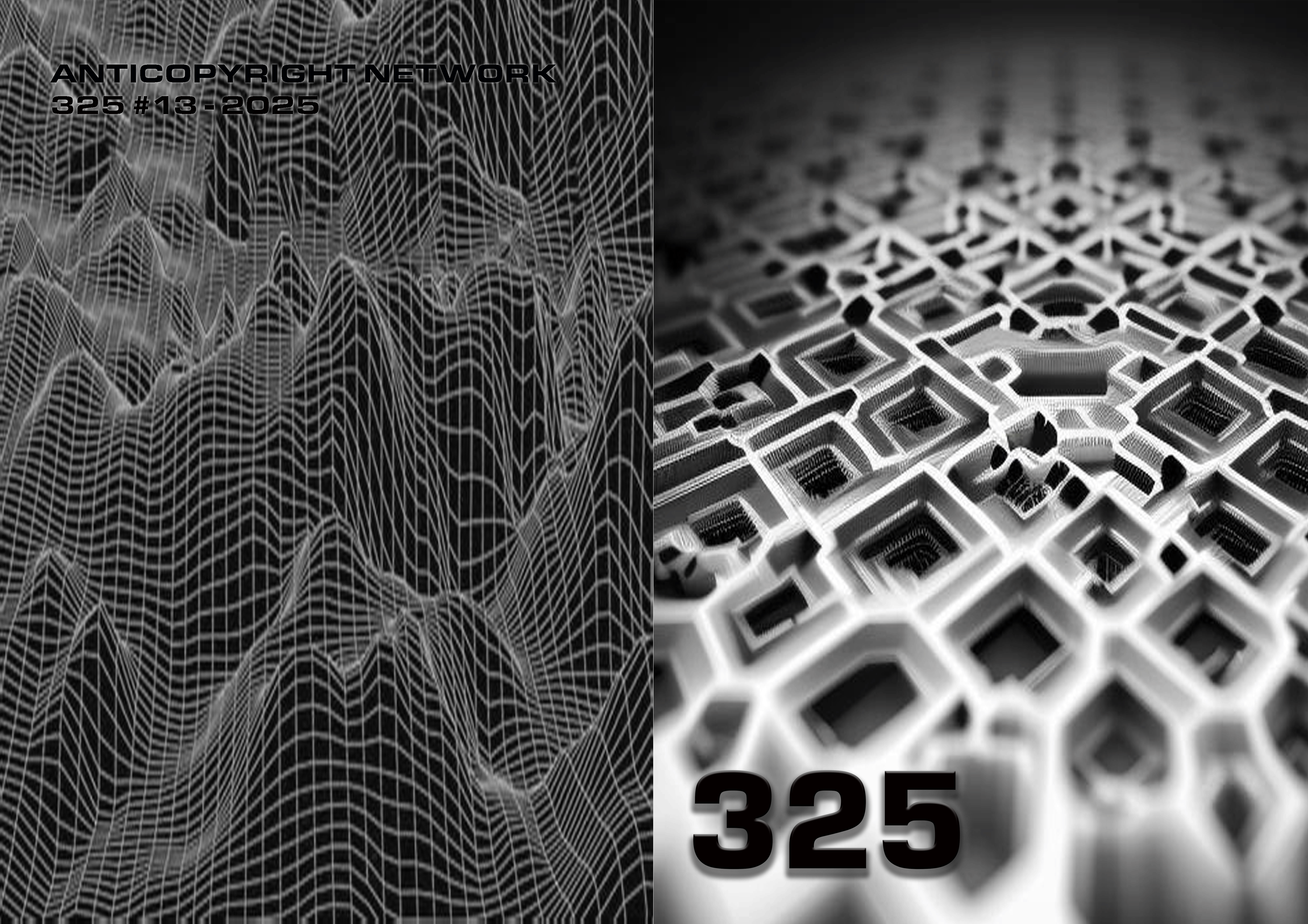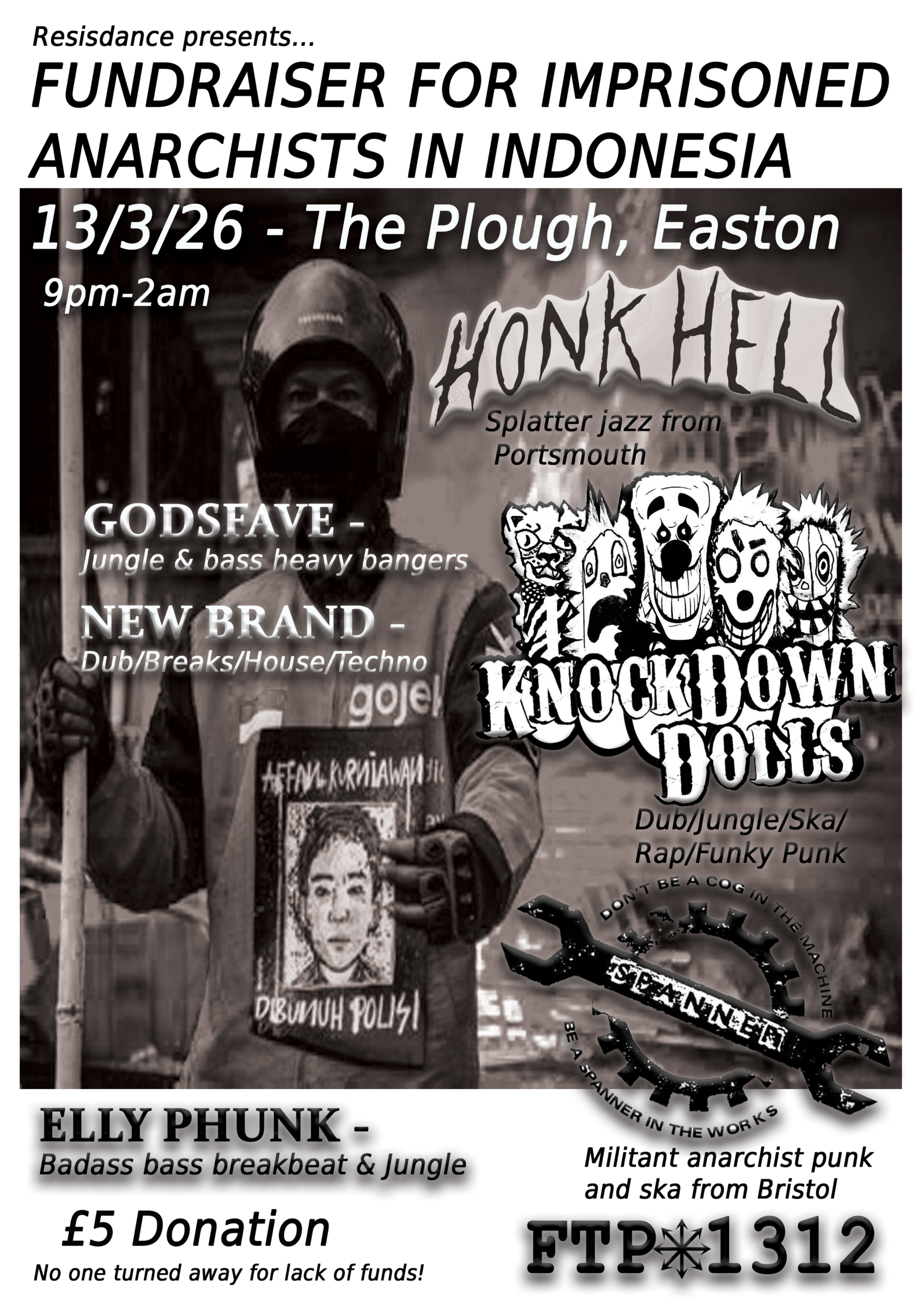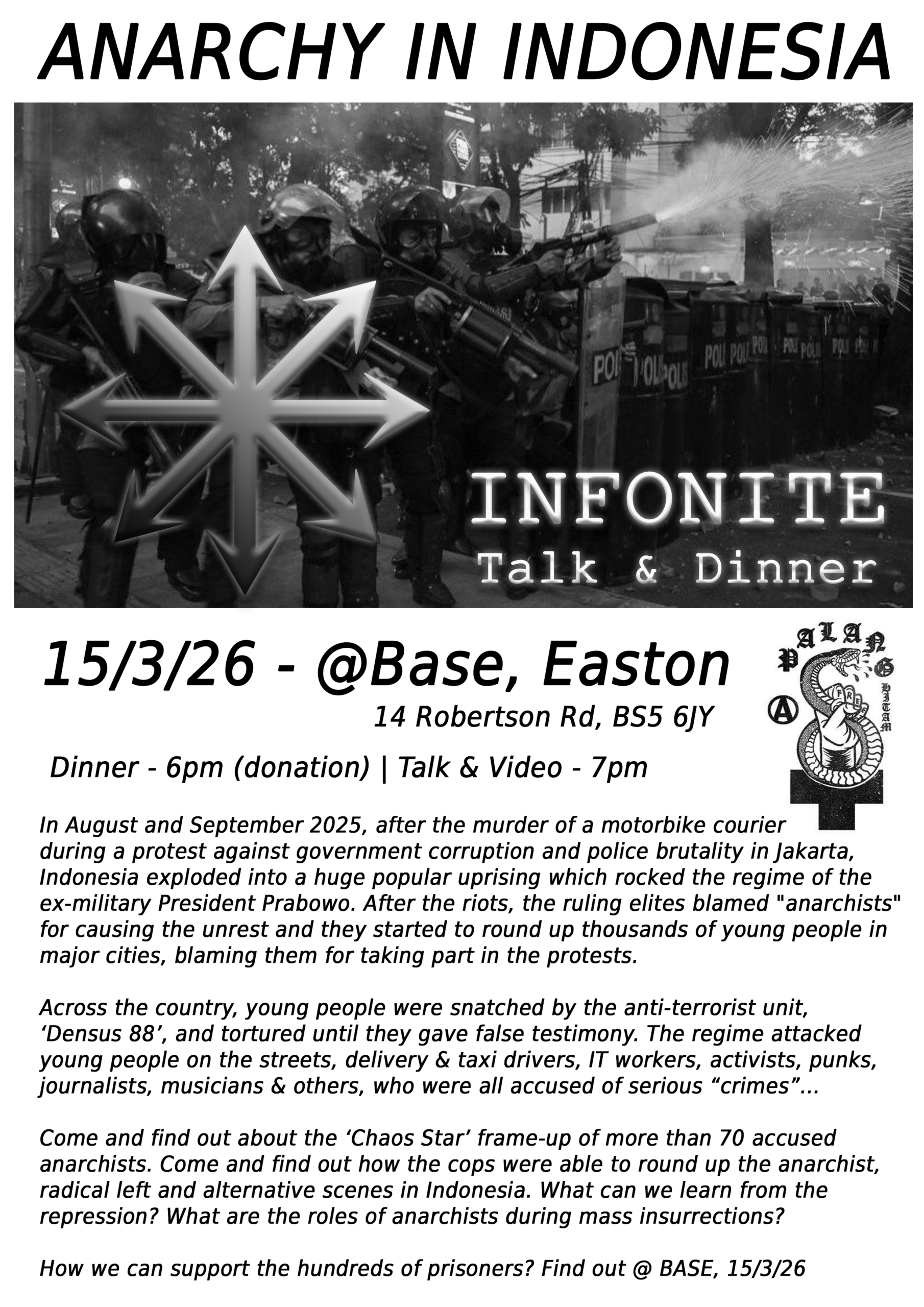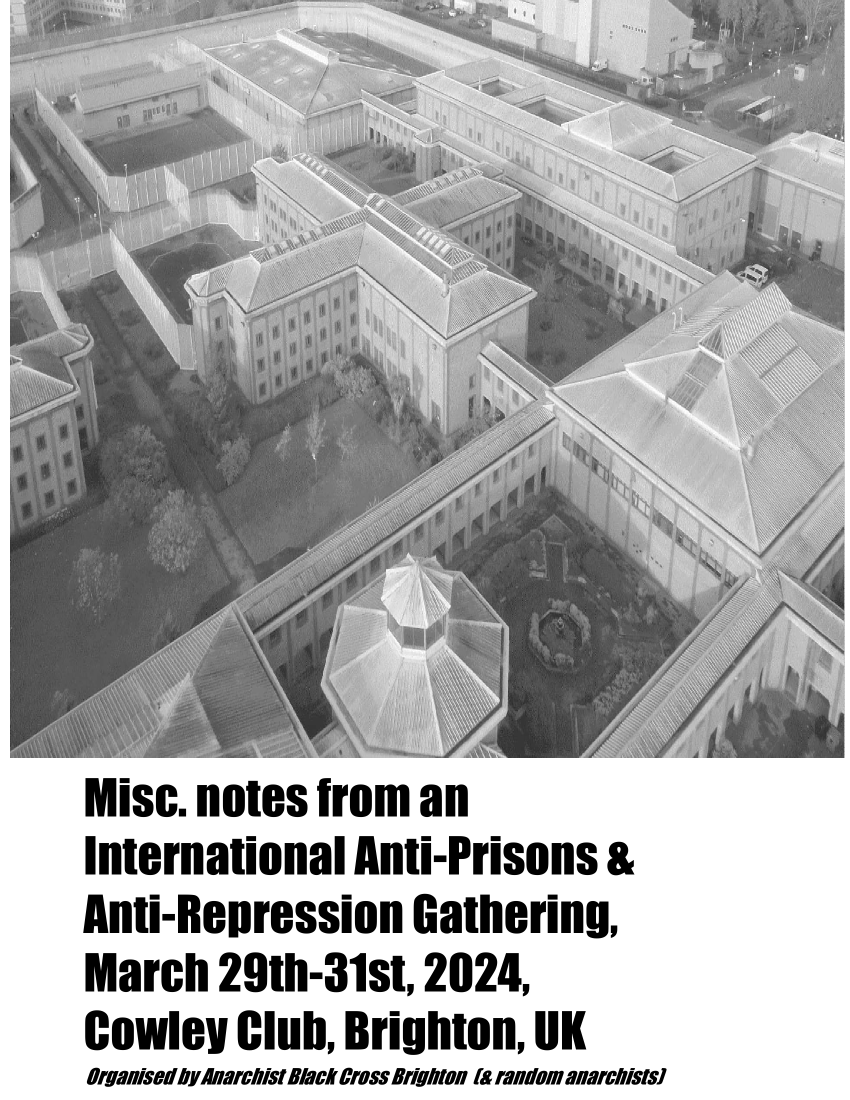
EN: 325#13 -‘Back to Basics’ – 2025
ES: 325#13 “De vuelta a lo básico”
Download HI-RES cover
Originally released in March 2025, the PDF online version of 325 #13 is out now. 76 pages of anarchist, anti-capitalist and anti-civilisation writings, coverage and news. Continues the focus on high-technologies whilst providing space for critical anti-state perspectives and a restatement of principles. DIY print and distribution. For the next generation of international struggle.
For all the nameless unknowns.
CONTENTS
#3. Editorial
#4. ‘Against Artificial Intelligence’ by VQ
#5. ‘Life Extension’ by Training and Research Cell – N.T.
#6. ‘Yes, Collapse’ by John Zerzan
#7. ‘Third Niskai: The River Wye’ by Anarchists in Forest of Dean
#8. ‘The Biolaboratory World’ by Constantino Ragusa
#13. ‘Revolutionising Power: 3D Printed Firearms for the People’ by Anons
#14. Chile: Interview with a nihilistic anarcho-informal affinity group vs Jurnal Anarki (Indonesia)
#17. ‘Fourth Generation Warfare’ by Anons
#17. Anti-State Radio Broadcasts
#18. Berlin, Germany: Open Letter by Daniela Klette
#19. ‘Greetings from Illegality’: Letter from Burkhard Garweg ‘Martin’, Underground RAF Member
#23. ‘Expropriation: Illegalist Anarchism’ by Anons
#23. ‘Against the Myth of the Many-Headed Hydra’ by Anons
#24. ‘An overview of repression in Italy’ by Cassa AntiRep
#26. Operation Sibilla Acquittals
#27. ‘Informal Organisation’ by L
#27. ‘Revolution and Language’ by VQ
#29. ‘Tavistock’ by Jim Keith
#33. ‘Humans and Suffering: Our Folly?’ by Anonymous
#35. ‘The Changing Nature of Warfare: Advancements of Military Drones/U.A.V.’ by The Uncivilized
#39. ‘Akheiron’ by Rifki Syarani Fachry
#40. ‘Restructuring of power and anarchist perspectives’ by Alfredo M. Bonanno
#44. ‘Resilience: Adapting to a toxic world’ by Silvia Guerin
#47. ‘Notable moments in cybernetics’ by Anons
#48. ‘The New Wave of Mining Industries’ by Bandido
#50. ‘Data Colonialism’ by Negre y Verde
#51. ‘Where It Lives‘ by Research Cell – N.T.
#52. Alfredo Cospito: Statement at the Turin Court of Appeal
#54. Anna Beniamino: Statement at the Turin Court of Appeal
#55. Communiqué by Nicola De Maria, Imprisoned Militant of the Red Brigades
#55. Statement in Memory of Ulrike Meinhof by Anarchist Prisoner Thanos Hatziangelou
#57. ‘For my comrade, Kyriakos X’. by Anarchist Prisoner Marianna M.
#58. Direct Action Chronology
#64-#73 Misc: ‘Anarchic Worldview’ by Confrontación, 14th Century Samurai Poem, Review: ‘The Invisible Rainbow’ by Arthur Firstenberg, Review: ‘The Red Sect’ by Enzo Martucci, Review: ‘The Unknown Revolution: 1917-1921 by Voline, Southeast Asian Library, Negazine #2, What is the Cassa Antirepressione delle Alpi Occidentali?, KSL Bulletin #116, Tameio, Prisoner address list, Counter-Info Links, A. M. Bonanno (1937 – 2023), 2000 DS Film
ANTI-COPYRIGHT NETWORK 2025






